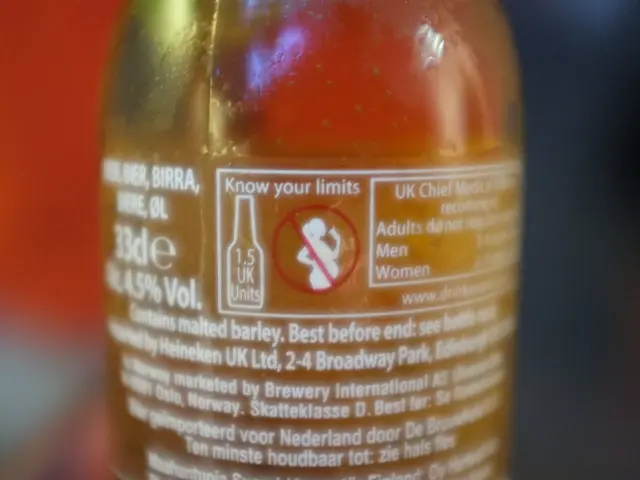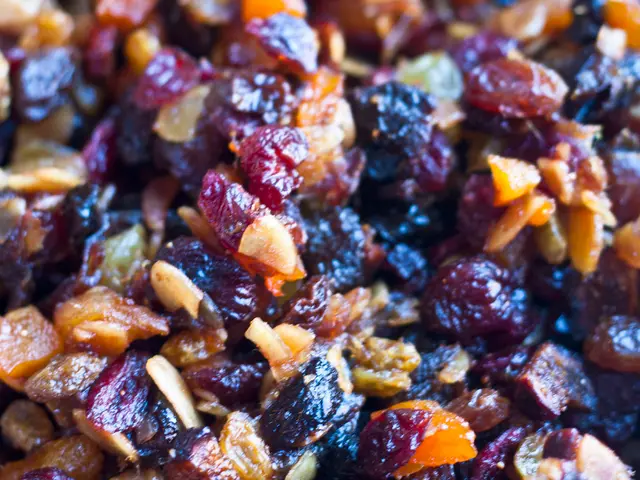Consuming Sugary Drinks Could Potentially Increase Risk of Developing Type 2 Diabetes
New Meta-Study Exposes the Complex Relationship Between Sugar Consumption and Type 2 Diabetes Risk
Recent research conducted by a team of researchers led by Brigham Young University sheds light on the intricate relationship between sugar consumption and the development of type 2 diabetes (T2D), revealing that the source of the sugar—whether solid foods or sugar-sweetened beverages (SSBs)—plays a significant role in this link.
While popular belief may associate excessive sugar intake with an elevated risk of T2D, the study finds that the correlation between sugar and the condition is more intricate than previously thought. The meta-analysis examines the impact of sugar-sweetened drinks versus sugars contained in solid foods.
The Dilemma of Sugar-Sweetened Beverages
The mounting evidence suggests that consuming sugar primarily through beverages, such as soda, energy drinks, sports drinks, and fruit juices, drastically heightens one's risk of developing T2D. Every 12-ounce serving of a sugar-sweetened beverage adds roughly 25% to an individual's baseline risk of developing T2D, with no discernible safe minimum consumption threshold.
It seems that even a single serving a day can pose a risk. Fruit juice, though often perceived as a healthier alternative, still harbors a significant amount of sugar and is associated with an approximately 5% increase in T2D risk per every 8-ounce serving consumed each day. It is essential to note that these are relative risks, meaning that a person with an initial 10% risk could potentially double their risk to approximately 20% if consuming four sodas daily.
The Protective Role of Sugar in Solid Foods
Quite surprisingly, sugar ingested via solid foods such as table sugar or total dietary sugar from naturally occurring and added sources reveals no increased risk when it comes to T2D. On the contrary, moderate daily intake around 20 grams hints at a potentially protective association against the disease. This implies that sugars in solid foods may not present the same metabolic risks observed when they are consumed through liquids, possibly owing to differences in digestion and absorption rates as well as the presence of other food components such as fiber in solid foods.
The Gist of the Research Implications
This study challenges the notion that "all sugar is bad" unequivocally and emphasizes the significance of context in determining the health effects of sugar. It suggests that the manner in which sugar enters our bodies matters considerably.
To avoid T2D, the research unequivocally advises avoiding sugar-sweetened beverages. However, it also supports the idea that sugar has a role to play in a balanced, healthy diet, as long as it is not provided in liquid form. By carefully considering the food context—including fiber, protein, and other nutrients—the body can process sugar in a manner that supports overall health rather than contributing to metabolic disfunction.
- The study led by Brigham Young University reveals that the consumption of sugar-sweetened beverages significantly increases the risk of developing type 2 diabetes, with no safe minimum consumption threshold.
- Contrary to sugar-sweetened beverages, moderate daily intake of sugar from solid foods shows no increased risk of type 2 diabetes, and may even have a protective association against the disease.
- The research highlights the importance of context in determining the health effects of sugar, emphasizing that the manner in which sugar enters our bodies matters greatly.
- To avoid type 2 diabetes, the study advises avoiding sugar-sweetened beverages, but also supports the idea that sugar has a role in a balanced, healthy diet, provided it is not in liquid form.
- This meta-study challenges the simple notion that "all sugar is bad" and underscores the role of nutrition science in understanding complex relationships between diet, endocrine function, and chronic diseases like type 2 diabetes within the broader context of health and wellness.








